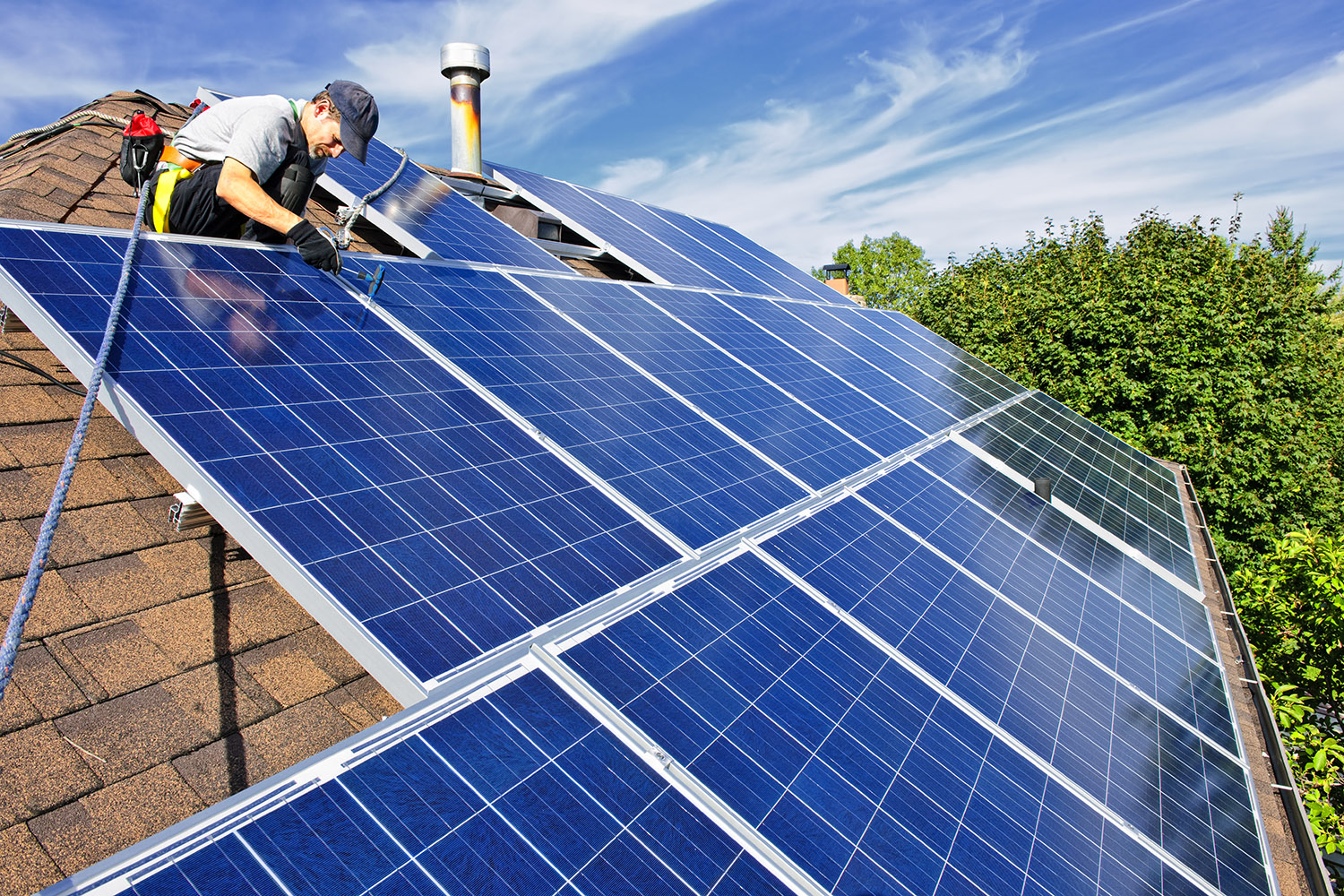How solar power installation Can Lower Your Business Costs and Reduce Your Carbon Footprint
How solar power installation Can Lower Your Business Costs and Reduce Your Carbon Footprint
Blog Article
Why Solar Power Installment Is the Smart Selection for Your Home or Service
The choice to set up solar power in your house or business is increasingly identified as a calculated financial investment, driven by a combination of economic motivations and ecological factors to consider. With the potential for considerable power cost savings, coupled with federal government motivations, the first expenses can be countered substantially. Moreover, welcoming solar power not just enhances your residential or commercial property's value but additionally adds to an extra sustainable future. The effects of this selection extend beyond simple price financial savings and aesthetics, motivating a more detailed evaluation of the wider benefits and potential obstacles linked with solar power adoption.
Financial Cost Savings and Incentives
Spending in solar energy setups can significantly lower energy costs for homeowners and businesses alike. By using energy from the sunlight, properties can produce their own electrical energy, leading to considerable savings on month-to-month energy costs. In numerous instances, these savings can counter the initial setup prices within a few years, giving an attractive roi.
In addition, various economic incentives exist to motivate solar fostering. Federal tax obligation debts, such as the Investment Tax Obligation Credit Rating (ITC), enable property owners and businesses to subtract a substantial percentage of solar installation expenses from their government taxes. solar photovoltaic. Several states and local governments likewise use refunds, gives, or performance-based incentives, further improving the cost of planetary systems
Financing choices, including solar financings and leases, are available to relieve the ahead of time financial concern. With these plans, building proprietors can spread out the price of installment over time, often paying less than their previous electrical power costs.
In addition, the boosting worth of buildings equipped with planetary systems makes them extra appealing in the property market. Generally, the economic benefits of solar energy installments are engaging, making them a smart investment for the future.
Environmental Effect and Sustainability

In addition, solar installations can lower dependence on non-renewable sources, such as coal and gas, which can cause habitat damage and contamination via removal and burning processes. By transitioning to solar power, property owners and companies proactively take part in minimizing their carbon impact, cultivating a much healthier ecosystem.
Additionally, the production of solar panels has become much more effective and less hazardous to the setting for many years. Several suppliers are currently devoted to utilizing lasting techniques, consisting of reusing materials and lessening waste.
Energy Independence and Stability
Achieving energy freedom via solar energy installations encourages individuals and neighborhoods to reduce their dependence on imported nonrenewable fuel sources. This shift not just improves neighborhood energy safety and security yet additionally stabilizes energy prices in time. With solar power, property owners and companies can produce their very own electrical energy, reducing the effect of varying energy rates driven by worldwide markets.
Solar installations give a lasting alternative that aids barrier against geopolitical stress and supply chain disruptions connected with fossil gas reliance. By harnessing sunshine, communities can grow a self-sufficient power structure, making sure constant accessibility to power regardless of external factors. This self-reliance promotes financial durability, as energy manufacturing becomes local, keeping even more funds within the community.
In addition, the transition to solar energy adds to grid security. Dispersed solar systems can alleviate anxiety on traditional power grids, minimizing the likelihood of power outages during peak demand durations. As more entities embrace solar modern technology, the collective change in the direction of renewable power resources enhances the general security of the energy landscape. Eventually, welcoming solar power not only advertises specific and area empowerment but likewise sustains nationwide goals for a sustainable and reliable energy future.

Technological Advancements in Solar
Developments in solar technology are changing the way power is taken advantage of and made use of, even more sustaining the power independence accomplished via solar important source installations. Advancements in photovoltaic or pv (PV) cells, particularly the development of bifacial panels, enable boosted power capture by soaking up sunshine from both sides. This technology enhances effectiveness and makes best use of power output, making solar installations much more efficient than ever.
Additionally, enhancements in power storage space options, such as lithium-ion batteries, use home owners and organizations the capacity to save excess power created throughout height sunshine hours. This ability makes sure a consistent energy supply during periods of low sunshine, boosting power dependability and decreasing dependency on the grid.
Smart inverters have actually also become a crucial part of modern-day solar systems, providing real-time surveillance and optimization of energy usage (solar photovoltaic). These systems make it possible for customers to handle their energy consumption smartly, bring about lowered expenses and improved efficiency